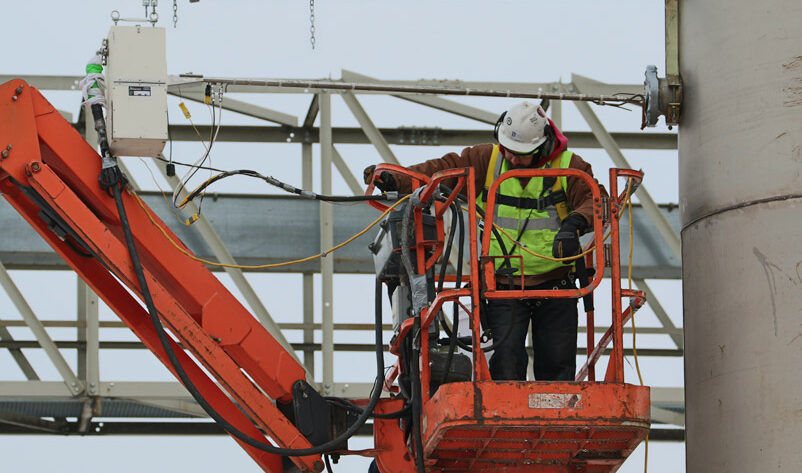GOST 33050 Automated Emission Measurement Test
The GOST 33050 Automated Emission Measurement Test is a critical procedure used in the oil and gas sector to ensure compliance with stringent emission standards. This test evaluates the levels of pollutants released during various operations, including flaring and venting processes. The standard, which aligns with international best practices such as ISO 14022, provides a robust framework for measuring emissions accurately and reliably.
The GOST 33050 protocol is designed to measure multiple pollutants simultaneously, including carbon dioxide (CO2), methane (CH4), nitrogen oxides (NOx), volatile organic compounds (VOCs), and particulate matter. The testing process involves the use of advanced emission measurement instrumentation that can operate under various environmental conditions, ensuring consistent results.
For oil and gas operations, compliance with GOST 33050 is not just a regulatory requirement but also a means to minimize environmental impact. By accurately measuring emissions, operators can identify inefficiencies in their processes and implement corrective measures. This is particularly important for flaring operations, where the release of unburned hydrocarbons can significantly affect air quality.
The testing process begins with the collection of samples from various points within the oil and gas facility. These samples are then analyzed using sophisticated instrumentation that adheres to GOST 33050 specifications. The equipment used for this test includes continuous emission monitoring systems (CEMS) and portable gas analyzers, ensuring real-time data collection.
Once the samples have been collected and analyzed, the results are reported in a detailed format that complies with GOST 33050 requirements. This report serves as a critical document for quality managers and compliance officers, providing clear insights into the facility's emission performance. The data can be used to inform decision-making processes related to process optimization and environmental sustainability.
It is important to note that GOST 33050 is not just about meeting regulatory requirements; it also plays a vital role in ensuring operational efficiency. By identifying areas where emissions can be reduced, operators can improve their overall performance and reduce costs associated with compliance penalties.
The implementation of the GOST 33050 protocol requires specialized knowledge and expertise to ensure accurate results. Eurolab, as a leading laboratory in this sector, offers comprehensive services that include training on how to perform the test accurately and efficiently. This ensures that clients can confidently interpret their own data or rely on Eurolab's professional testing capabilities.
In addition to its role in compliance and operational efficiency, the GOST 33050 Automated Emission Measurement Test also contributes significantly to environmental sustainability. By providing precise measurements of emissions, this test helps facilities identify opportunities for improvement, leading to reduced environmental impact and enhanced air quality.
Why It Matters
The importance of the GOST 33050 Automated Emission Measurement Test cannot be overstated. In the oil and gas industry, where operations can have a significant environmental footprint, this test is essential for maintaining regulatory compliance and minimizing the impact on air quality.
- Regulatory Compliance: The GOST 33050 protocol ensures that all emissions are measured accurately, aligning with international standards. This helps facilities avoid penalties and maintain a positive reputation.
- Environmental Impact Reduction: By identifying areas where emissions can be reduced, this test contributes to the overall goal of environmental sustainability. Lower emissions translate directly into improved air quality and reduced greenhouse gas contributions.
- Operational Efficiency: The insights gained from GOST 33050 testing enable operators to optimize their processes, leading to cost savings and enhanced performance.
In summary, the GOST 33050 Automated Emission Measurement Test is not just a compliance tool; it is a strategic asset that supports environmental sustainability, operational efficiency, and regulatory adherence in the oil and gas sector.
Eurolab Advantages
At Eurolab, we pride ourselves on providing top-tier services that are tailored to meet the unique needs of our clients. Our expertise in GOST 33050 Automated Emission Measurement ensures that you receive accurate and reliable results every time.
- Accurate Testing: With state-of-the-art instrumentation and trained professionals, Eurolab delivers precise measurements that comply with international standards.
- Comprehensive Reporting: Our reports are detailed and easy to understand, providing clear insights into your facility's emission performance.
- Expert Knowledge: Our team of experienced engineers and scientists ensures that you receive the best possible advice on how to optimize your operations for reduced emissions.
- Client Support: Eurolab offers ongoing support, ensuring that you are always up-to-date with the latest developments in emission measurement technology and compliance requirements.
By choosing Eurolab for your GOST 33050 Automated Emission Measurement needs, you can be confident that you are receiving the highest quality service from a trusted industry leader.
Environmental and Sustainability Contributions
- Emissions Reduction: By identifying areas where emissions can be reduced, this test contributes to the overall goal of environmental sustainability. Lower emissions translate directly into improved air quality.
- Greenhouse Gas Management: The accurate measurement of greenhouse gases helps facilities understand their carbon footprint and take steps to mitigate it.
- Air Quality Improvement: By minimizing the release of pollutants, this test plays a crucial role in improving local air quality.
- Sustainable Operations: The insights gained from GOST 33050 testing enable operators to implement sustainable practices that enhance operational efficiency and reduce environmental impact.





